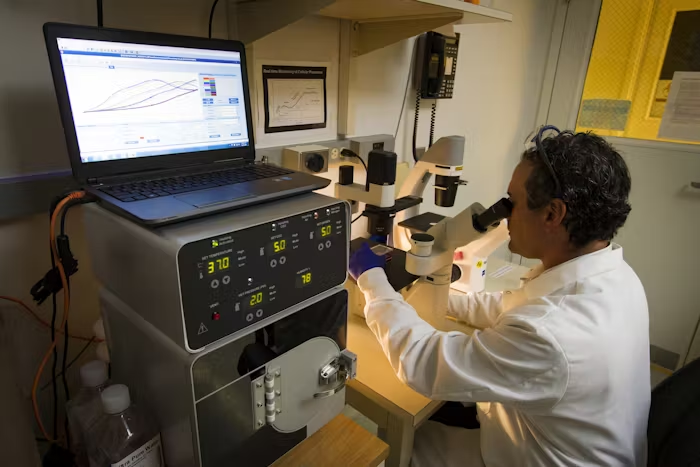In our fast-paced world, it’s easy to get caught up in the whirlwind of daily responsibilities and forget to pause and reflect. Regular reflection and self-audit might not be trending hashtags, but their impact on personal growth, mental clarity, and productivity cannot be overstated. Taking time to evaluate your actions, decisions, and progress offers a pathway to living a more intentional and fulfilling life.
In this article, we’ll dive deep into the benefits of regular reflection and self-audit, why they are essential in today’s age, and actionable tips to incorporate these practices into your routine.
Why Reflection and Self-Audit Are More Important Than Ever
1. Enhancing Self-Awareness
Self-awareness is the cornerstone of personal growth. Reflection allows you to better understand your emotions, motivations, and behaviors. By auditing your actions, you can identify patterns that either help or hinder your progress.
Example:
Have you ever wondered why certain tasks make you procrastinate? Reflecting on these moments can reveal triggers and empower you to take corrective actions.

2. Gaining Clarity in Goals
Regular self-audit ensures that your daily actions align with your long-term objectives. It’s easy to get sidetracked by short-term distractions, but reflection helps you refocus on what truly matters.
Why It Matters:
Without clarity, you risk spending time on tasks that don’t contribute to your growth. Reflection enables you to realign priorities and make meaningful progress.
3. Building Emotional Resilience
Life comes with its fair share of challenges. Reflection provides a safe space to process your emotions, learn from setbacks, and build resilience. By auditing your reactions to past events, you can approach future challenges with a stronger mindset.
Science-Backed Insight:
Studies show that people who regularly reflect on their experiences develop greater emotional intelligence, which is key to maintaining healthy relationships and reducing stress.
4. Improving Decision-Making
When you take time to reflect, you make better decisions. Reflection gives you the opportunity to assess what worked, what didn’t, and why. Self-audit helps eliminate impulsive decision-making by offering a structured evaluation of your choices.
Pro Tip:
Keep a journal to log major decisions and their outcomes. Reviewing these entries can provide valuable insights into your decision-making patterns.
Key Benefits of Regular Reflection and Self-Audit
1. Increased Productivity
Reflecting on your daily activities helps you identify time-wasters and streamline your workflow. Self-audits can uncover inefficiencies and pave the way for more focused efforts.
Practical Example:
If you spend hours scrolling on social media, auditing your screen time can help you reclaim those lost hours and use them for productive activities.
2. Strengthened Relationships
Reflection isn’t just about introspection — it also helps you understand your interactions with others. Auditing your communication habits can improve how you relate to family, friends, and colleagues.
Tip for Better Relationships:
After any conflict, take a moment to reflect on your role in the situation. This practice can help you approach similar situations with greater empathy and understanding.
3. Achieving Personal Growth
Growth requires consistent evaluation. Reflection and self-audit allow you to measure your progress over time. By identifying strengths and areas for improvement, you create a roadmap for self-improvement.
Example:
If you’ve set a goal to exercise regularly but keep falling short, auditing your schedule and habits can reveal obstacles you need to overcome.
4. Enhanced Creativity
Reflection can unlock creative potential by encouraging you to think deeply about your experiences. Reviewing past projects or decisions often sparks new ideas and innovative solutions.
How to Spark Creativity:
Schedule quiet time to reflect without distractions. Let your mind wander freely — it’s often during these moments that creative breakthroughs occur.
How to Incorporate Reflection and Self-Audit into Your Life
1. Schedule Regular Check-Ins
Set aside dedicated time for reflection. This could be daily, weekly, or monthly, depending on your preference and schedule.
Example:
- Daily: Reflect for 5–10 minutes before bed.
- Weekly: Spend 30 minutes reviewing the past week and planning for the next.
- Monthly: Conduct a deep-dive self-audit to assess progress toward your goals.
2. Keep a Reflection Journal
Journaling is one of the most effective ways to practice reflection. Write down your thoughts, feelings, and lessons learned from each day or week.
What to Include:
- Highlights of the day or week.
- Challenges you faced and how you handled them.
- Actions or behaviors you want to change.
3. Use Technology Wisely
Leverage apps and tools designed for reflection and self-audit. Productivity apps like Notion, Evernote, or even the notes app on your phone can help you track your thoughts and progress.
Pro Tip:
Set reminders to pause and reflect. Technology can be your ally in building consistency.
4. Ask the Right Questions
Effective reflection requires asking meaningful questions.
Questions for Reflection:
- What went well today/this week?
- What didn’t go as planned, and why?
- How did I contribute to my successes or setbacks?
- What can I do differently next time?
5. Seek Feedback
Reflection and self-audit don’t have to be solitary activities. Seek feedback from trusted friends, mentors, or colleagues to gain additional perspectives.
Why It Works:
External insights can reveal blind spots and provide constructive criticism that fuels growth.
Common Pitfalls to Avoid
1. Overthinking
Reflection is not about dwelling on mistakes but learning from them. Avoid spiraling into negative thought patterns.
2. Lack of Consistency
Reflection and self-audit are only effective when done regularly. Make them a non-negotiable part of your routine.
3. Being Too Hard on Yourself
Focus on progress, not perfection. Celebrate small wins and view setbacks as learning opportunities.
The Long-Term Impact of Reflection and Self-Audit
When practiced consistently, reflection and self-audit lead to:
- Greater Self-Confidence: You become more in tune with your strengths and accomplishments.
- Improved Mental Clarity: Regular introspection helps declutter your mind and prioritize what matters most.
- Sustainable Success: Aligning your actions with your goals ensures lasting achievement.
In a world filled with distractions, regular reflection and self-audit offer a powerful way to stay grounded, focused, and intentional. These practices not only help you achieve your goals but also enhance your overall quality of life.
Remember, reflection isn’t about looking back with regret — it’s about looking forward with purpose. Start small, stay consistent, and watch as these habits transform your personal and professional life.














